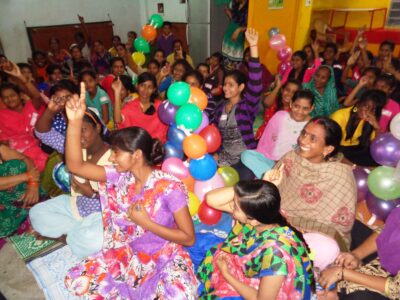The problem
Malnutrition
Nearly half of all adolescent girls ages 15–19 in India are underweight, with a body mass index of less than 18.5. As a result of poor nutrition, adolescents in Fakir Bagan grow up to be anemic, malnourished adults. This negatively affects their own health, increases the likelihood of complications during pregnancy and childbirth, and compromises the health of their future children.
Underage marriage and motherhood
In India, more than half of all marriages include girls younger than 18 years old, and 16% of women ages 15–19 years old are already mothers or pregnant. Babies born to adolescent mothers are 60% more likely to die in the first year of life than babies born to mothers older than 19 years old. Young women who give birth are also more likely to die: 45% of all maternal deaths in India occur among women ages 15–24.
Poor access to reproductive health information
Adolescent girls in Fakir Bagan don’t typically learn about basic health concepts like menstruation and sex — or worse, they’ve been fed inaccurate and damaging ideas, like that menstruation is a curse. Many marry as teenagers and enter marriage with no understanding of sex, how pregnancy occurs, or what to expect during pregnancy and motherhood.
Lack of self-confidence and self-advocacy tools
The expectation for most adolescent girls in Fakir Bagan is that they will marry and have children young. Even if they have other hopes for their future, they don’t know how to turn those dreams into reality.




